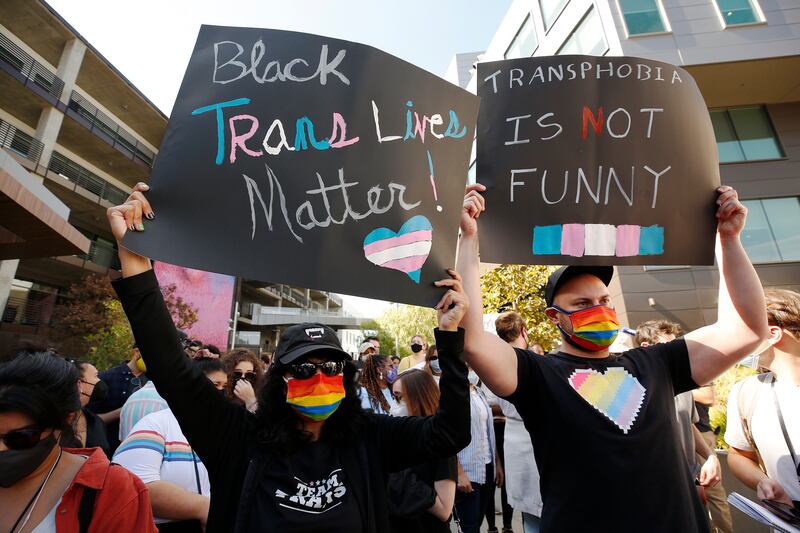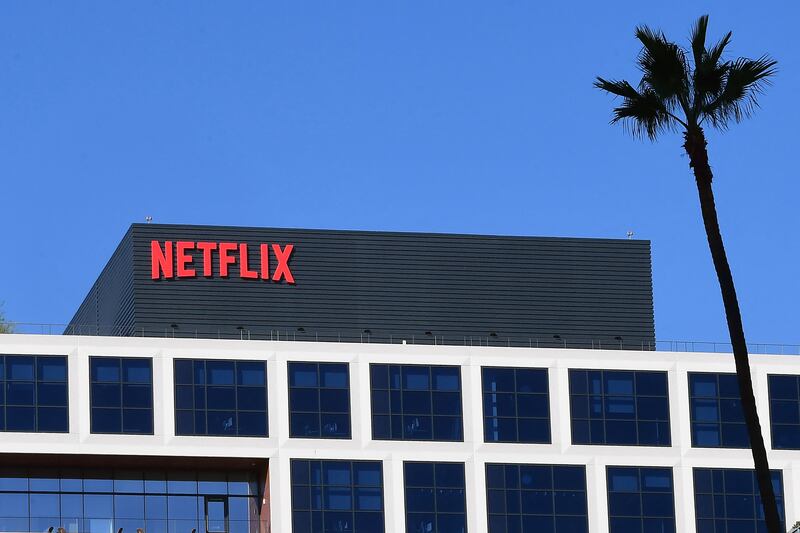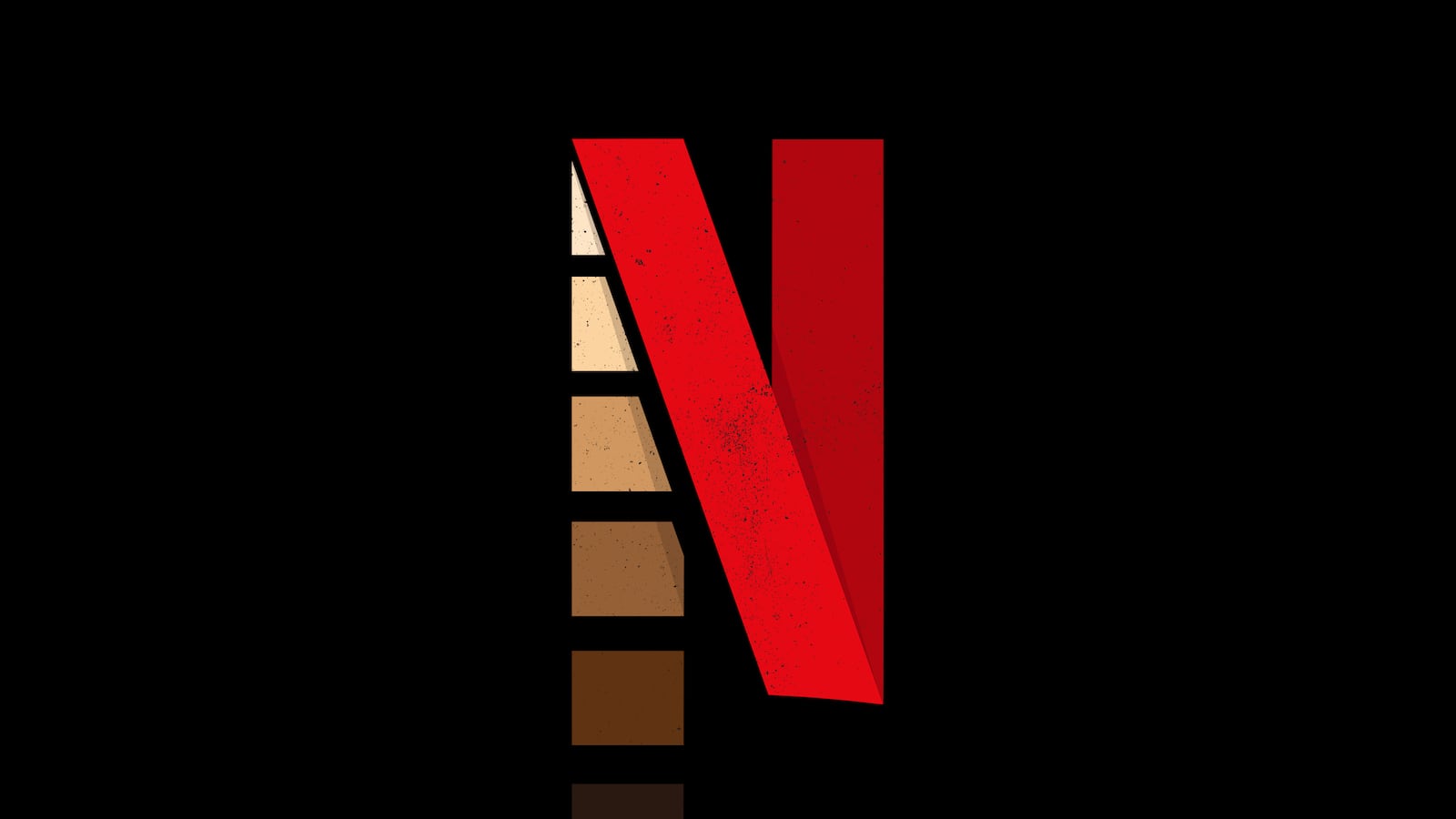Ricky Gervais’ transphobic Netflix special might be stirring up controversy, but its release should surprise absolutely no one.
After several controversies surrounding anti-trans programming, especially Dave Chappelle’s latest comedy special, The Closer, Netflix appears to have decided that bigotry masquerading as “free speech” can be a virtue, as long as audiences keep tuning in. And what better troll can one imagine than dropping an anti-trans special just ahead of Pride Month?
“There’s this intentional doubling down—like, We do controversial things; you deal or you don’t deal,” a former employee told The Daily Beast. “I think Chappelle was the tipping point of them finally taking a stand instead of trying to kind of waver in the middle.”
The shift has not been subtle. In fact, Netflix enshrined its embrace of laissez-faire discourse in its recently updated culture memo, which now tells employees that they “may need to work on titles you perceive to be harmful.” In order to justify the company’s ongoing support for Chappelle, CEO Ted Sarandos claimed last year its leaders believe “content on screen doesn’t directly translate to real-world harm”—a notion Netflix’s own documentary about Hollywood depictions of transgender people, Disclosure, debunks.
As Netflix’s culture memo now reads: “If you’d find it hard to support our content breadth, Netflix may not be the best place for you.”
The streamer’s stock began tanking earlier this month after the company reported a loss of 200,000 subscribers in Q1—its first user downturn in more than a decade. The financial tailspin preceded two rounds of layoffs said to have affected hundreds of full-time employees and contractors. The departures appear to have been concentrated in marketing divisions including the editorial operation Tudum and branded social channels like Strong Black Lead—teams overwhelmingly populated by women of color.
The popular narrative surrounding the Netflix layoffs suggests that the company’s money problems brought down the ax, but a source told The Daily Beast that doesn’t really seem to be the case.
“They hinted around at the audience channels being decimated, and that was before the [quarterly] call,” the former employee said. “So, the call seems to be the way that they are framing to justify [the layoffs], but it was something they were going to do anyway.”
The success of Strong Black Lead prompted Netflix to court other marginalized communities with voice-driven accounts like the LGBTQ-focused Most, the Latinx channel Con Todo, and AAPI-centered Golden. But the past several months of Netflix content have been both homogenous and more importantly, multiple sources admitted, just plain bad. “So bad.”
Counter to the popular narrative, one source argued, “I don’t think this is the story of Netflix targeting minority communities that they purported to build up—I think this is a company that is completely tailspinning.”
“They need to be honest, and they need to understand that this is not the right move to lay off all these people of color and the LGBTQ folks is not the move,” another source said. “The move is to finally figure out what the hell’s going on in your content…You can’t just keep throwing spaghetti at the wall and seeing what sticks.”
In its most recent statement about the layoffs, Netflix wrote, “As we explained on earnings, our slowing revenue growth means we are also having to slow our cost growth as a company…These changes are primarily driven by business needs rather than individual performance, which makes them especially tough as none of us want to say goodbye to such great colleagues.”
Netflix presented its updated culture memo to employees at a town hall meeting. Contractors are not invited to these gatherings, where one insider said the atmosphere was generally fraught. The meetings “had this veneer of positivity, but there was actually a lot of tension,” the source said; employees are allegedly permitted to ask questions but tend to do so carefully, couching their concerns in corporate jargon rather than speaking directly.
When asked to describe Netflix’s typical reaction to employee outcry, the source said, there really isn’t a response.
“There’s never a concrete next action step. There’s never a reinvestment in the community that’s been harmed,” they said. “It’s always, ‘We see you, we hear you, and also we’re gonna continue to platform Chappelle.’”
For proof of just how little Netflix seems to care about its employees’ concerns, look no further than the streamer’s response (or lack thereof) to staffers’ walkout last year.

Netflix employees hold signs outside a Netflix location in Hollywood on Oct. 20, 2021, as members of the Netflix employee resource group Trans*, co-workers, and other allies staged a walkout to protest Netflix’s decision to release Dave Chappelle’s latest Netflix special, which contains a litany of transphobic material.
Al Seib/GettyIn October, Netflix suspended three trans employees—including Terra Field, a trans engineer whose Twitter thread criticizing the company’s support for Chappelle went viral—only to reinstate them after an employee-led protest. Field announced her resignation soon afterward when the company fired B. Pagels-Minor—a Black trans employee who organized the protest and was pregnant at the time.
Netflix alleged Pagels-Minor leaked confidential information to Bloomberg, a claim Pagels-Minor denied. The company’s trans employee resource group released a list of demands ahead of its protest, but Netflix does not appear to have ever addressed it publicly.
As the demonstrations and public furor unfolded last fall, the team behind Most—Netflix’s queer-focused Twitter channel—found themselves in an impossible bind.
“It was uncomfortable for all of the obvious reasons,” a source familiar with the team’s discussions said. The staffers behind Netflix social accounts, the insider added, “are privy to what’s coming down the pipeline. And there was nothing that was going to mitigate this in any substantial way.”
Even Netflix’s go-to defense, its support of the documentary Disclosure, came under fire when Disclosure subject Jen Richards clarified that the streamer did not make or commission the doc but instead “purchased the streaming rights for less than half of what it cost to make and relied on us to promote it.” Most of the cast, she added, were forced to pay their own way to Sundance Film Festival for the film’s world premiere.

The Netflix building on Sunset Boulevard in Los Angeles.
Frederic J. Brown/AFP/GettyIn an attempt to build goodwill, the Most account fired off a brief Twitter thread in mid-October.
“As the queer and trans people who run this account, you can imagine that the last couple of weeks have been hard,” the account tweeted. “We can’t always control what goes on screen. What we can control is what we create here, and the POV we bring to internal conversations.”
“We have been reading all of your comments and using them to continue advocating for bigger and better queer representation,” the account continued. The statement ended on a cutesy note—“ok you can go back to yelling at us now”—and Twitter happily obliged.
As inevitable as they might seem in retrospect, however, the Netflix layoffs are also part of a bigger fight—one between a public that recognizes the real-world harm that hateful content creates, and Silicon Valley’s libertarian worship of “free speech” above all else. By gutting these social teams and Tudum, letting go of hundreds of marginalized professionals with only a couple weeks’ severance, Netflix seems to be sending a clear message about what (and who) it values. Looking ahead, one former employee expressed skepticism about the company’s future.
“They do not have leadership, and they don’t have a sense of the kind of stories they want to tell,” they said. “I don’t know where they’re going.”
A representative for Netflix did not immediately respond to The Daily Beast’s request for comment.


